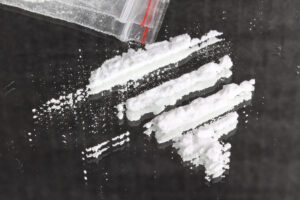What is Meth Addiction
Meth addiction, also known as methamphetamine addiction, is a serious and destructive condition characterized by compulsive use and dependence on methamphetamine, a powerful and highly addictive stimulant drug.
Methamphetamine affects the central nervous system, producing intense euphoria, increased energy, and heightened alertness. People become addicted to methamphetamine due to its potent effects on the brain’s reward system, causing a surge of dopamine, a neurotransmitter associated with pleasure.
At advanced stages of methamphetamine, consequences can be grave; so, it is crucial for individuals struggling with meth addiction to seek professional help and support from healthcare providers as soon as possible.
Detoxification is often the first step in any Meth abuse treatment program, followed by behavioral therapies, counseling, and support groups to address the psychological aspects of addiction and develop coping mechanisms for cravings and triggers.

Warning Signs of Meth Addiction
Meth addiction leaves behind a trail of observable signs, reflecting its profound impact on individuals. Recognizing and understanding these signs is crucial in acknowledging the destructive nature of methamphetamine addiction.
- Drastic Changes in Physical Appearance: Meth addiction can cause significant changes in a person’s physical appearance. Look for rapid weight loss, dilated pupils, a pale complexion, and skin sores or acne-like marks.
- Behavioral and Emotional Changes: Pay attention to sudden mood swings, irritability, aggression, paranoia, and excessive anxiety or nervousness. Meth addicts may exhibit erratic behavior, engage in risky activities, and have difficulty focusing or staying still.
- Neglect of Personal Hygiene: Meth addiction often leads to neglect of personal grooming habits. Individuals may appear unkempt, have bad breath, and neglect dental care, resulting in dental problems known as “meth mouth.”
- Sleep Disturbances: Methamphetamine use disrupts normal sleep patterns, leading to insomnia or prolonged periods of wakefulness. Look for signs of excessive fatigue, restlessness, and a lack of sleep routine.
- Social Withdrawal and Relationship Issues: Meth addicts may isolate themselves from friends and family, lose interest in activities they once enjoyed, and have strained relationships due to drug use.
- Physical Health Decline: Watch for signs of deteriorating physical health, such as frequent illnesses, infections, and a general decline in overall well-being.
Health Complications with Meth Addiction
Meth addiction is a dangerous condition characterized by compulsive use and dependence on methamphetamine. This powerful stimulant drug can have severe physical, psychological, and social consequences for individuals caught in its grip.
- Cardiovascular Problems: Methamphetamine use puts a tremendous strain on the cardiovascular system, increasing the risk of heart attacks, irregular heart rhythms, high blood pressure, and even heart failure.
- Respiratory Issues: Inhalation of methamphetamine smoke can damage the lungs and respiratory system. Users may develop a chronic cough, wheezing, shortness of breath, and an increased susceptibility to respiratory infections.
- Psychiatric Disorders: Prolonged meth addiction can trigger or worsen psychiatric conditions, including anxiety disorders, depression, paranoia, hallucinations, and psychosis.
- Weakened Immune System: Chronic methamphetamine use weakens the immune system, making users more susceptible to infections and illnesses. They may experience frequent colds, flu-like symptoms, and other infectious diseases.
- Cognitive Impairment: Methamphetamine abuse can lead to long-term cognitive impairments, affecting memory, attention, decision-making, and problem-solving abilities. Users may experience difficulties with concentration, learning, and overall cognitive functioning.
- Nutritional Deficiencies: Methamphetamine often suppresses appetite, leading to inadequate nutrition and weight loss. Chronic malnourishment can weaken the immune system, impair organ function, and contribute to physical weakness.
Seek help now for an effective meth recovery. Contact our specialized Meth Rehab Los Angeles center at (626)-792-8797 for professional meth addiction counseling, support, care, and a pathway to recovery. Don’t face this battle alone; we’re here to help.

Contact us for any medical help and fill out an appointment form
Blog
Discover new insights, gain inspiration, and find helpful information on addiction, treatment, and navigating life in recovery. Our blog features expert advice, personal stories, and the latest research to help you or your loved one on the journey to recovery.